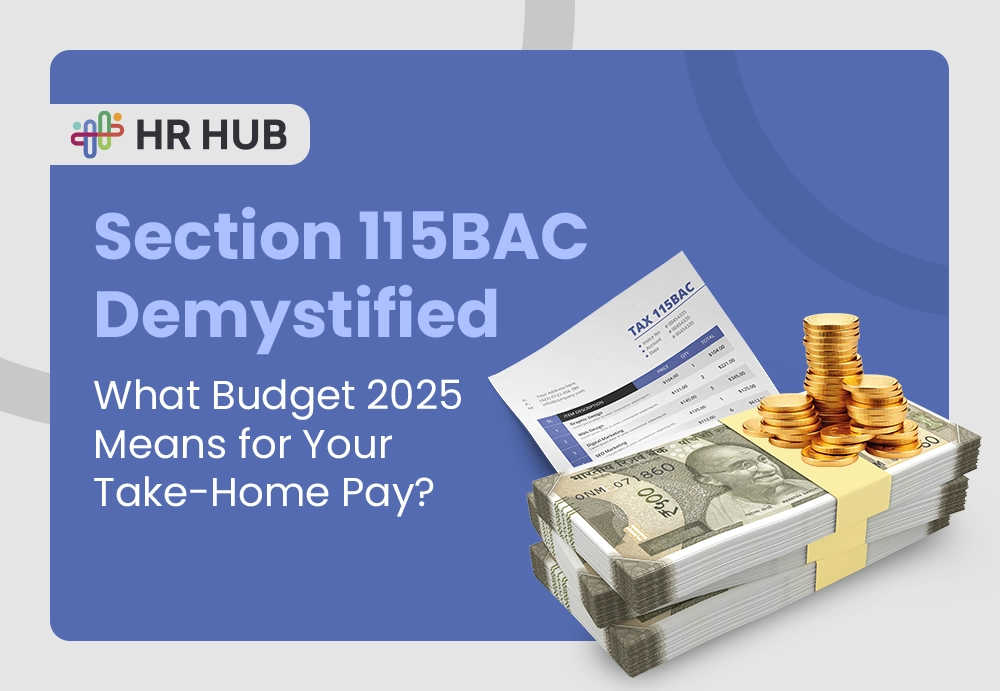Once upon a time, recruitment meant stacks of resumes on a desk, hours of manual screening, and countless “We’ll get back to you” calls. Fast-forward to today, and the game has changed. Candidates expect speed. Hiring managers expect precision. And HR? They’re caught in the middle, trying to balance both without losing their minds.
This is where AI-powered recruitment software steps in—not as a replacement for human judgment, but as the secret weapon that makes great hiring happen faster.
The Moment AI Took a Seat at the Interview Table
Imagine this: It’s 9 a.m., and instead of slogging through 200 resumes for a marketing role, your dashboard shows you the top 12 candidates—already matched to your job description, skills scored, and ranked for cultural fit. You didn’t spend hours reading. You didn’t second-guess keywords. You just… started shortlisting.
That’s the difference between traditional tools and an AI-driven recruitment management system. It doesn’t just store data—it reads between the lines, learns from patterns, and helps you see what’s invisible in a CV.
Breaking Down the AI Magic in Recruitment
Let’s go beyond the buzzwords and see how this technology transforms day-to-day hiring. For HR teams and business leaders, understanding these mechanics is crucial—not just to justify investment, but to fully leverage what AI can offer.
1. Intelligent Candidate Sourcing
Traditional way: You post a job on a couple of platforms, then wait—and hope—that the right people notice it. If they don’t, the role stays vacant for weeks.
AI-powered way: The system becomes your 24/7 talent scout. It actively searches across job boards, LinkedIn, niche industry networks, academic platforms, and even internal talent databases. But it doesn’t stop at active job seekers—it also identifies passive candidates who may not be looking right now but fit your needs perfectly.
How it works:
- Uses keyword context matching to find candidates with related skills, even if they haven’t applied to your posting.
- Cross-references online portfolios, published articles, code repositories (like GitHub), and conference speaker lists.
- Prioritizes candidates based on skill relevance, availability indicators, and cultural alignment.
Example: Looking for a cybersecurity analyst? AI scans GitHub contributions, cybersecurity forums, and infosec webinars to find someone who’s been actively publishing security scripts or whitepapers—long before they submit a resume.
Impact: Your sourcing moves from reactive to proactive, cutting vacancy times dramatically.

2. Smart Resume Parsing
The problem with manual searches is that you risk missing great candidates simply because they use different terminology. A “digital marketing strategist” and an “online growth consultant” might have identical skill sets—but a traditional ATS could miss the match.
What AI does differently:
- Uses Natural Language Processing (NLP) to understand meaning and context rather than just matching keywords.
- Detects synonyms, role equivalents, and related industry jargon automatically.
- Highlights transferable skills, career growth trajectory, and even job stability patterns.
Advanced capability: Some AI parsers even extract soft skills from a resume’s tone and phrasing—for instance, spotting leadership tendencies from achievements like “led cross-department projects” or “mentored junior staff.”
Impact: You get a richer, more accurate candidate shortlist without manually digging through hundreds of documents.
3. Predictive Analytics for Hiring
This is where AI feels like a well-informed hiring advisor. Instead of guessing, you get data-backed probabilities for candidate success.
How it works:
- Analyze historical hiring data from your own company: who performed well, who left early, and why.
- Considers external benchmarks from your industry.
- Factors in role complexity, candidate experience, and even cultural fit indicators.
Example: Before you even set up an interview, the AI might tell you: “Candidate A has an 85% likelihood of staying beyond two years based on similar profiles we’ve seen in your organization.”
Impact: Recruiters can prioritize candidates with the highest potential for performance and retention, reducing turnover costs.
4. Automated Candidate Engagement
The reality: CIs often drop off because they feel ignored. A delayed response can push them toward a faster-moving competitor.
AI’s fix:
- Sends instant acknowledgments (“Your application has been received!”).
- Schedules interviews without manual back-and-forth using calendar integration.
- Delivers personalized status updates and reminders automatically.
Extra value: AI chatbots can also answer FAQs (“What’s the interview process like?”) at any time of day, keeping candidates engaged even outside office hours.
Impact: You maintain candidate enthusiasm, reduce drop-off, and boost your employer brand reputation.
5. Bias Reduction Through Objective Screening
Unconscious bias—based on names, addresses, schools, or even photo impressions—can unintentionally influence hiring decisions.
AI’s approach:
- Focuses on quantifiable skills, certifications, and relevant experience.
- Blinds certain personal data during initial screening to encourage merit-based shortlisting.
- Uses consistent evaluation criteria for every applicant.
Caution: AI is only as fair as the data it’s trained on. If historical hiring data has biases, the system can replicate them. That’s why human oversight is essential to monitor results and keep the process genuinely inclusive.
Impact: A more equitable hiring pipeline that opens doors to talent you might have overlooked otherwise.
6. Video Interview Intelligence
AI can now analyze recorded or live video interviews to assess not just what a candidate says, but how they say it.
- Measures communication clarity, tone, and confidence.
- Detects role-relevant soft skills (e.g., leadership, empathy, adaptability).
- Flags inconsistencies between answers and resume claims.
Example: For a sales manager role, AI might highlight that Candidate B demonstrates strong persuasive tone and audience engagement cues, making them ideal for client-facing positions.
7. Automated Job Description Optimization
An AI-powered HR recruiting software can review your job postings and recommend:
- Using more inclusive language can help attract diverse applicants.
- Keywords and structure that rank better on job boards.
- Clarity improvements to reduce applicant confusion.
This ensures you’re attracting the right candidates from the start, rather than filtering through a flood of mismatches.
8. Skill Gap Analysis
Before you even start hiring, AI can analyze your current workforce data to identify skill gaps.
- Suggests which roles need urgent filling.
- Recommends training programs for existing staff to reduce hiring needs.
This turns recruitment into a strategic, data-driven function rather than a reactive process.
9. Real-Time Collaboration Tools
Modern recruitment management systems allow multiple stakeholders—HR, hiring managers, department heads—to review candidates in real time, leave comments, and update statuses without long email chains.
With AI in the mix:
- The system prioritizes candidates across departments automatically.
- Everyone sees an up-to-date, unified view of progress.
10. Offer Management & Acceptance Prediction
AI can predict the likelihood of a candidate accepting your offer based on:
- Market salary benchmarks.
- Candidate engagement levels during the process.
- Competing job market activity.
If the risk of decline is high, the system can recommend adjusting compensation or benefits before you send the offer.
11. Continuous Learning for Better Matches
Unlike traditional systems, AI learns from every hire—successful or not. Over time, it gets better at spotting patterns in candidates who thrive in your company, making each new search more accurate.

The Next Step in Your Hiring Journey
The future of hiring is not about replacing recruiters—it’s about giving them superpowers. AI-powered recruitment software delivers speed, precision, and data-backed insights so you can focus on building genuine human connections with the people you hire.
And suppose you want a solution that goes beyond hiring to support the entire employee journey. In that case, HR HUB offers an AI-driven recruitment management system integrated with payroll, onboarding, and performance tools. It’s designed to help businesses not just fill positions, but build strong, lasting teams.
Because the real win isn’t filling a role—it’s finding the people who will shape your company’s future.





